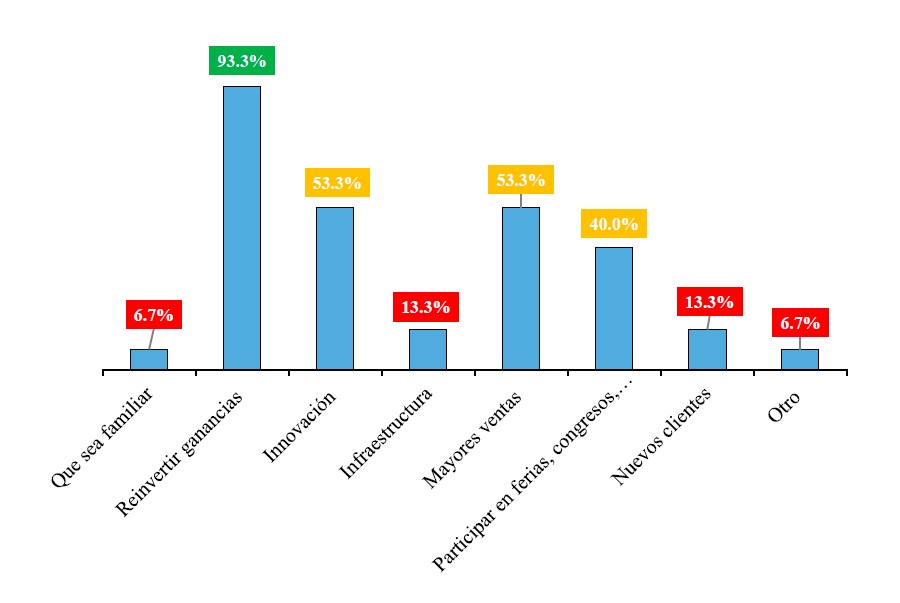Amaranth-processing famiempresas in Santiago Tulyehualco, Xochimilco
DOI:
https://doi.org/10.29312/remexca.v13i1.2746Keywords:
family-business links, family patrimony, family self-employmentAbstract
The contribution of micro and small enterprises to the Gross Domestic Product is small, but they are the main sources of employment in Mexico. The present research studied famiempresas that process amaranth in Santiago Tulyehualco, Xochimilco Borough. The main objective was to characterize their cultural, economic and affective characteristics that have allowed them to survive. The collection of information was carried out between 2018 and 20019 through surveys applied to owners or people in charge and workers of micro and small enterprises, which contained qualitative and quantitative data. The surveys were designed in Excel® to make the application and capture simultaneously and subsequently, the data were statistically processed with SPSS®. This information was complemented by semi-structured interviews and observation visits in the production workshops. The results indicate that the owners started the business investing their own resources for the self-employment of their families and to continue with the tradition of processing amaranth. In the famiempresas there are no fixed schedules, not all activities are remunerated, the development of skills occurs through the transmission of knowledge from one generation to another, relationships with customers are direct contact; entrepreneurs do not keep accurate administrative records nor is there a business plan, the owners would like to expand their enterprise, but very few have achieved this goal, although they are satisfied to have created a family patrimony and jobs for their families. It is concluded that micro and small amaranth-processing enterprises are famiempresas because they have a strong identity link between the family and the enterprise in the town of Santiago Tulyehualco.
Downloads
References
Amarís, M.; Polo-Vargas, J. y Gutiérrez-González. L. 2015. Familias en el trabajo: estrategias de afrontamiento de grupos microempresarios familiares. Rev. Cienc. Soc. México. 4(21):560-568.
Arango-Jaramillo, M. 2005. Manual de cooperativismo y economía solidaria. Medellín, Colombia. Universidad Cooperativa de Colombia. 345 p.
Bañegil-Palacios, T.; Barroso-Martínez, A. y Tato-Jiménez, J. 2011. Profesionalizarse, emprender y aliarse para que la empresa familiar continúe. Rev. Emp. Famil. España. 2(1):27-41.
Bolívar-Espinoza, G. y Elizalde-Hevia, A. 2011. Capital social y capital. Polis Rev. Univer. Boliv. Chile. 29(10):7-16.
Castillo, M. L. 2015. Extensión universitaria como acercamiento a la realidad local. Ingeniería industrial, actualidad y nuevas tendencias. Venezuela. 15(4):47-56.
Chayanov, A. V. 1974. La organización de la unidad económica campesina. Buenos Aires, Argentina. (Ed.). Nueva Visión. 342 p.
Gallo, M. Á. 2011. El futuro de la empresa familiar. Barcelona, España. (Ed.) Profit. 151 p.
H. Congreso de la Unión. 2002. Ley para el desarrollo de la competitividad del micro, pequeña y mediana empresa. Publicado en el diario oficial de la federación. Última reforma DOF 19-05-2019. DF, México. 2 p.
Martínez-Salvador, L. 2016. Seguridad alimentaria, autosuficiencia y disponibilidad del amaranto en México. Rev. Prob. Des.186(47):107-132.
Presidencia de la república. 2019. Plan Nacional de Desarrollo. México. 39-42 pp.
Quejada-Pérez, R. y Ávila-Gutiérrez, J. 2016. Empresas familiares: conceptos, teorías y estructuras. Rev. Escuela de Administración de Negocios. 81:149-158.
Pérez-Mendiguren, J. C. y Etxezarreta, E. 2015. Sobre el concepto de economía social y solidaria: aproximaciones desde Europa y América Latina. Rev. Econ. Mun. 40:123-143.
Remilien, E.; Sánchez-Hernández, M.; Hernández-Salgado, J. H.; Servín-Juárez, R. y Carranza-Cerda, I. 2018. Perfiles de creación de microempresas en las zonas rurales: el caso de Santa Bárbara Almoloya, Cholula, Puebla. Agric. Soc. Des. 1(15):29-45.
Rodríguez-Pose, A. y Palavicini-Corona. E. I. 2013. El desarrollo económico local realmente funciona evaluación del (desarrollo económico local) a través de municipios mexicanos. Geoforum. Europa. 44:303-315. https://doi.org/10.1016/j.geoforum.2012.07.010.
Román-González, E. 2003. Financiamiento del desarrollo: acceso al crédito bancario de las empresas chilenas: lecciones de la década de los noventa. CEPAL. Santiago, Chile. 68 p.
Ruiz-Perera, M. 2015. La empresa familiar como disciplina científica. Ciencia y desarrollo. República Dominicana. 11(11):11-47.
Segovia-Rodríguez, A. 2013. Las famiempresas: más que unidades de producción económica, una oportunidad para la intervención social. Rev. Trab. Soc. 15:87-104.
Soto-Maciel, A. 2013. La empresa familiar en México: situación actual de la investigación. Contaduría y Administración. 2(58):135-171.
Tagiuri, R. y Davis J. 1996. Bivalent attributes of the family firm. Family business Review. Boston, Massachusetts. 2(9):199-208.
Trevinyo-Rodríguez, R. 2014. Empresas Familiares: visión latinoamericana. Estructura, gestión, crecimiento y continuidad. (Ed.) Pearson Hall. 412 p.

Downloads
Published
How to Cite
Issue
Section
License
Copyright (c) 2022 Revista Mexicana de Ciencias Agrícolas

This work is licensed under a Creative Commons Attribution-NonCommercial 4.0 International License.
The authors who publish in Revista Mexicana de Ciencias Agrícolas accept the following conditions:
In accordance with copyright laws, Revista Mexicana de Ciencias Agrícolas recognizes and respects the authors’ moral right and ownership of property rights which will be transferred to the journal for dissemination in open access. Invariably, all the authors have to sign a letter of transfer of property rights and of originality of the article to Instituto Nacional de Investigaciones Forestales, Agrícolas y Pecuarias (INIFAP) [National Institute of Forestry, Agricultural and Livestock Research]. The author(s) must pay a fee for the reception of articles before proceeding to editorial review.
All the texts published by Revista Mexicana de Ciencias Agrícolas —with no exception— are distributed under a Creative Commons License Attribution-NonCommercial 4.0 International (CC BY-NC 4.0), which allows third parties to use the publication as long as the work’s authorship and its first publication in this journal are mentioned.
The author(s) can enter into independent and additional contractual agreements for the nonexclusive distribution of the version of the article published in Revista Mexicana de Ciencias Agrícolas (for example include it into an institutional repository or publish it in a book) as long as it is clearly and explicitly indicated that the work was published for the first time in Revista Mexicana de Ciencias Agrícolas.
For all the above, the authors shall send the Letter-transfer of Property Rights for the first publication duly filled in and signed by the author(s). This form must be sent as a PDF file to: revista_atm@yahoo.com.mx; cienciasagricola@inifap.gob.mx; remexca2017@gmail.
This work is licensed under a Creative Commons Attribution-Noncommercial 4.0 International license.


